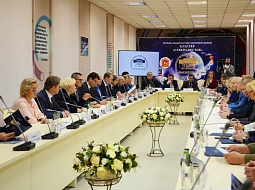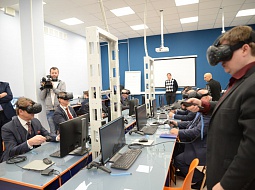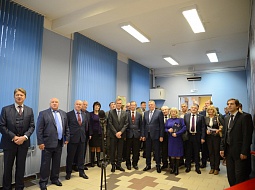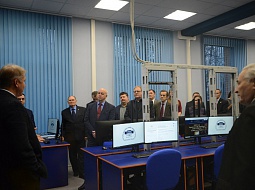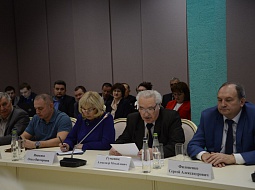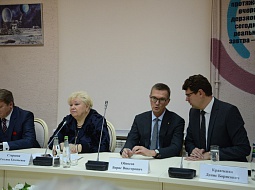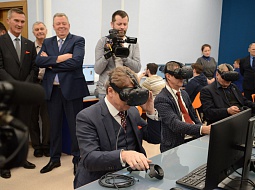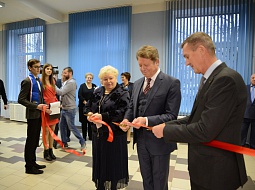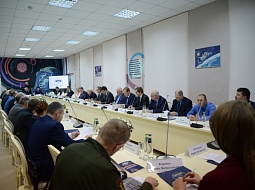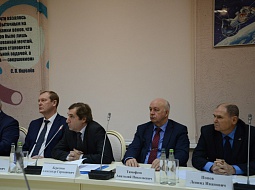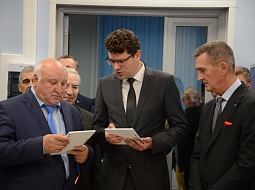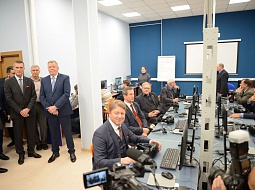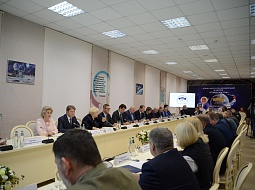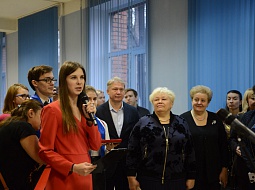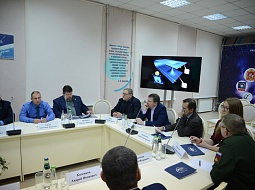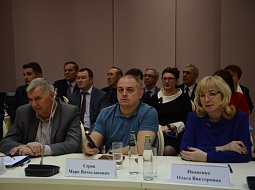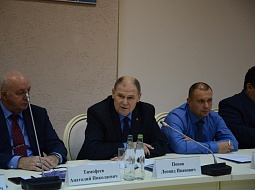PARTICIPANTS OF THE REGIONAL CLUSTER "NORTH-EAST" DISCUSSED ISSUES OF ARTIFICIAL INTELLIGENCE DEVELOPMENT AT THE UNIVERSITY
- University of Technology
- News
- PARTICIPANTS OF THE REGIONAL CLUSTER "NORTH-EAST" DISCUSSED ISSUES OF ARTIFICIAL INTELLIGENCE DEVELOPMENT AT THE UNIVERSITY
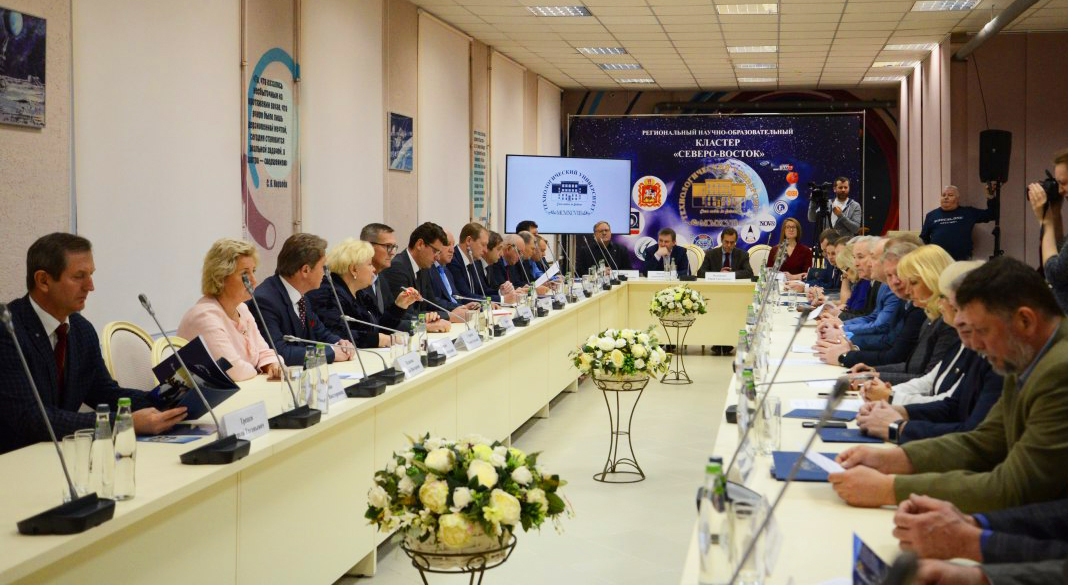
On November 19, the University of Technology hosted the annual meeting for the Supervisory Board of the Regional Scientific and Educational Cluster «North – East». The main theme was the training of engineering and technical personnel in order to implement the National Strategy for the Development of Artificial Intelligence, approved by Decree of the President of the Russian Federation in October this year. The meeting was attended by deputies of the State Duma of the Russian Federation and the Moscow Region Duma, heads of the city Korolyov Administration, leading Russian enterprises of the military-industrial complex, astronauts, the University of Technology management and faculty. The meeting of the Cluster Supervisory Board began with a visit to new workshops and laboratories equipped with modern technological equipment, which had been purchased by the University for a grant under the program of the Federal Project "Young Professionals" of the national project "Education" . This project is a part of the Russian Federation state program «Education Development ".
-Today at the meeting of the Cluster Supervisory Board, we are presenting five workshops in the information technology area. They are designed to solve the problems of training specialists for our industrial enterprises, which now widely use the capabilities of IT technologies and artificial intelligence, ”said Tatyana Startseva, rector of the University of Technology.
Laboratory workshops, created at the University, will become the main base for digital education of students in five priority IT competencies, such as “Software Solutions for Business”, “Virtual and Augmented Reality Development”, “Web Design and Development”, “Mobile Application Development” and "Analysis of the information systems security from external threats."
At the round table, Alexey Shchikanov, the first vice-rector of the University of Technology, and Evgeny Samarov, the dean of the Faculty for Information and Communication Systems and Technologies, presented to the participants and guests of the meeting progress made in preparing high-quality engineering and technical personnel and introducing artificial intelligence into the educational process at the University. Speakers noted that the University created favorable conditions for development of the artificial intelligence field: modern equipment, qualified teaching staff, motivated students. Many educational processes have been digitalized, for example, the creation of individual educational paths, student rating systems, curriculum, modeling of experiments. The University of Technology together with the defense industry enterprises are planning to further modernize the educational process taking into account the needs of enterprises in IT specialists.
At the meeting, reports were made by Alexander Beresnev, the Director General of JSC «Kompozit», and Leonid Popov , Deputy Director General of the Space Systems Research Institute.
The enterprises representatives spoke about the positive experience of longstanding cooperation with the University of Technology in training the personnel. The specialists have already been successfully working in the rocket and space industry and are contributing to its development. Speakers also stressed that today enterprises need specialists who are able to work with databases and a huge amount of information. And the University of Technology new workshops will help to train just such personnel.
After the speakers reports , the meeting participants exchanged views and discussed possible prospects for the development of the education and training system with the use of the artificial intelligence new capabilities. At the end of the meeting, the Supervisory Board members proposed their ideas for interaction within the framework of the implementation of the National Strategy for the Development of Artificial Intelligence and outlined the immediate plans for work.
Confidentiality
Personal data of employees are provided in accordance with the Consent to the processing of personal data
Policy regarding the processing of personal data
Information about the current requirements for the protection of personal data
Useful links
Contacts
141070 Moscow Region,
city of Korolev, st. Gagarin St., 42
+7 (495) 516-99-29
+7 (495) 516-99-46

